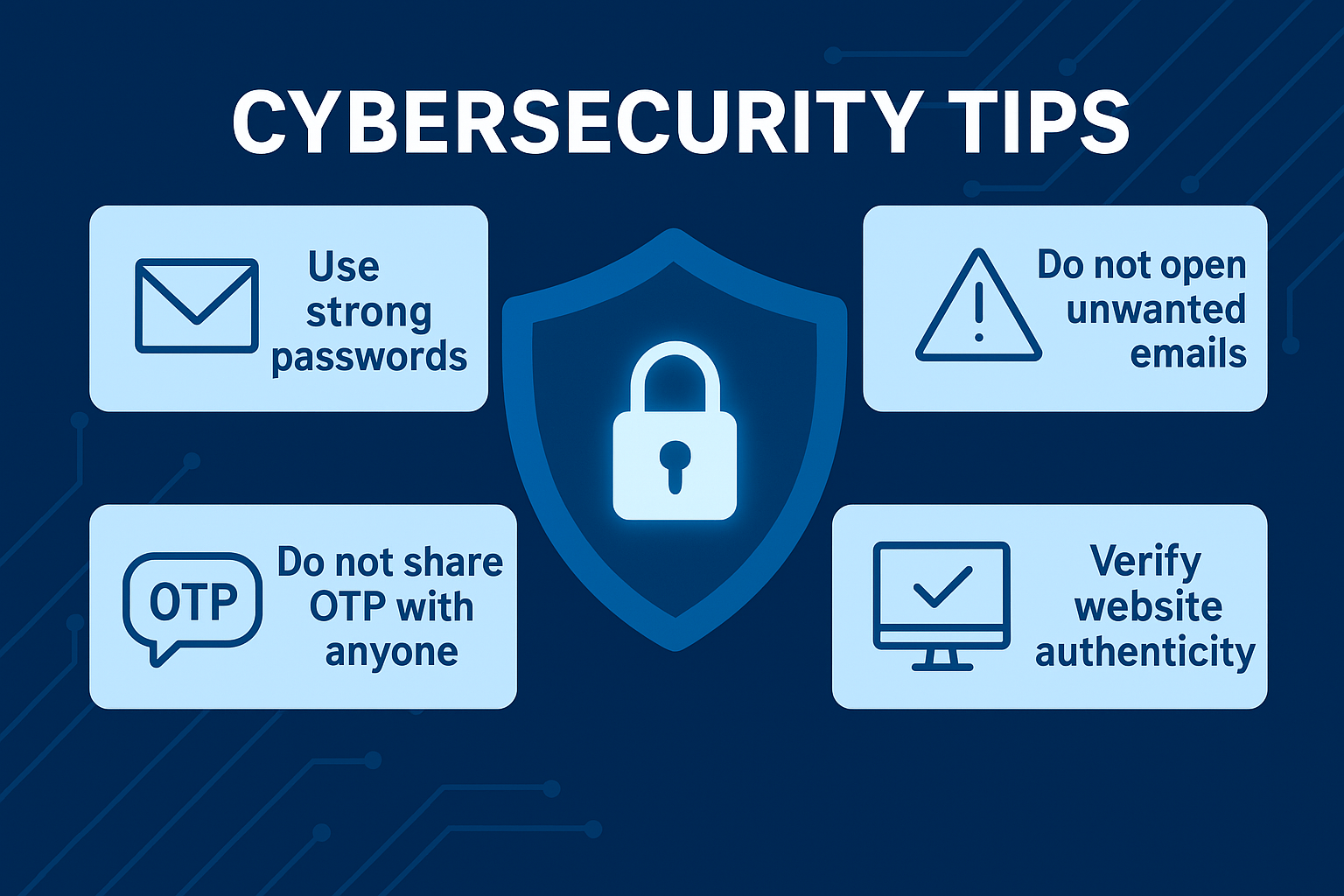

In today's digital world, cybersecurity is more important than ever. From online shopping to social media, we share personal information everywhere. But with cyber threats increasing, staying safe online should be a priority. Here are some simple yet effective ways to protect yourself:
Use Strong Passwords: A mix of letters, numbers, and symbols makes your password hard to guess. Avoid using the same password for multiple accounts.
Enable Two-Factor Authentication (2FA): This adds an extra layer of security by requiring a second verification step, like an OTP.
Beware of Phishing Scams: Don’t click on suspicious links or emails claiming to be from banks or service providers. Always verify the sender.
Update Your Software: Regular updates fix security flaws and protect against hackers.
Secure Your Wi-Fi: Use a strong password for your home network and avoid using public Wi-Fi for sensitive transactions.
Be Cautious with Downloads: Only download apps and files from trusted sources to avoid malware.
Monitor Your Accounts: Regularly check your bank and email accounts for unauthorized access.
Email Security Best Practices: Never open emails from unknown senders. Spam emails may contain malicious links or attachments that can infect your device.
Do Not Share OTPs: OTPs (One-Time Passwords) are meant for you alone. Never share them with anyone, even if they claim to be from your bank or a trusted organization.
Verify Website Authenticity: Before making any online transaction, ensure the website is genuine. Look for “https://” and a padlock symbol in the address bar. Avoid clicking on random links received via email or SMS.
Beware of Social Engineering Attacks: Hackers use psychological tricks to steal your information. Be cautious of calls or messages urging you to share sensitive details immediately.
Regular Backups: Keep a backup of important files on an external drive or cloud storage to prevent data loss due to cyberattacks.
Log Out from Public Devices: If you use a public or shared device, always log out after your session to prevent unauthorized access.
Cybercriminals are always looking for loopholes. By following these easy steps, you can keep your personal information safe and secure in your daily life. Stay alert and stay protected!